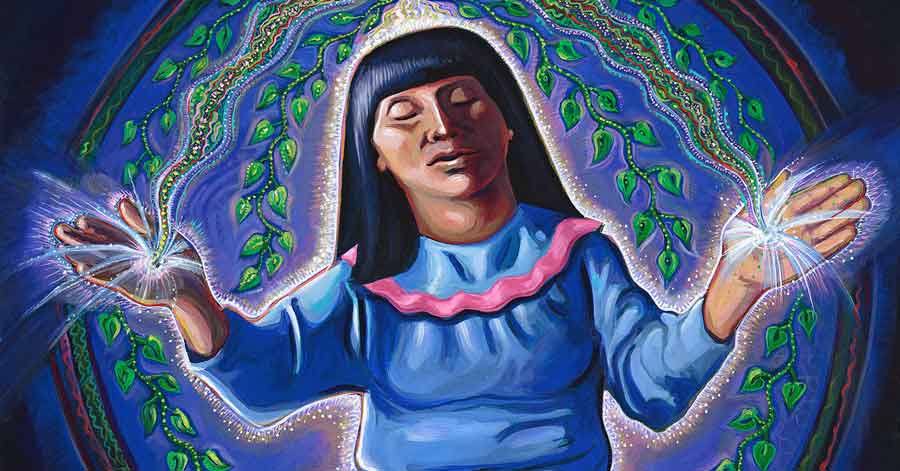
art by: Katherine Skaggs
The word “shaman” has been co-opted from its Evenki (Siberian) origins due to the limited vocabulary of anthropologists, and in its current context is used as a blanket term to describe a wide range of practitioners who enter altered states of consciousness and communicate with the spirit world for a variety of purposes.
Because this word is used by many who are unfamiliar with the culturally specific terms used to describe healers, seers and medicine people, the term “shaman” is a generalized term that is used to describe legitimate practitioners, but is also often used by frauds and amateurs. In some traditional indigenous spiritual communities, the words “shaman” and “shamanism” have taken on a negative context because of exploitation and appropriation.
In this insightful article, Ben Boomer of the The Center for Shamanic Education and Exchange, discusses these concerns, and how engaging with the intact spiritual traditions of another culture with proper respect, reciprocity, and gratitude can be beneficial for those seeking a deeper relationship with life.